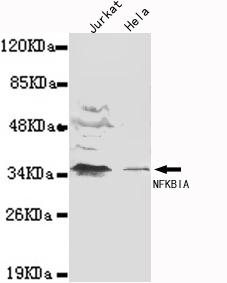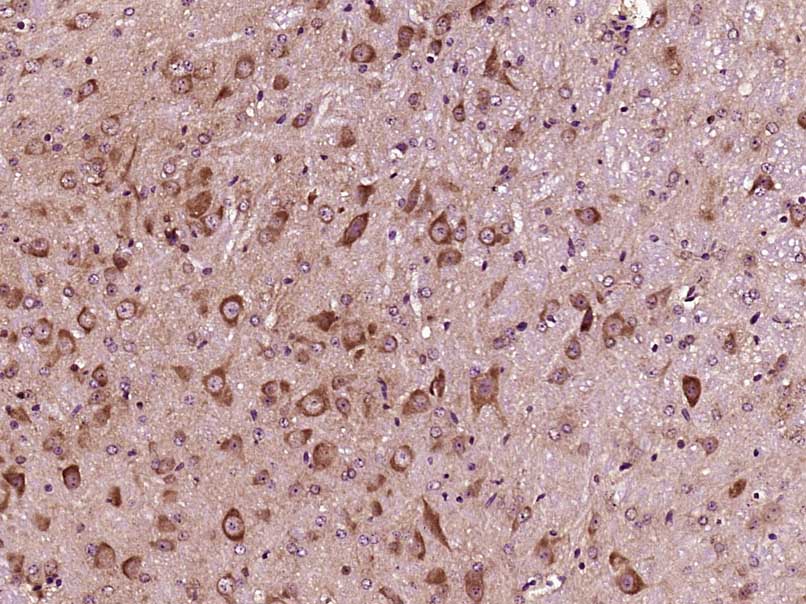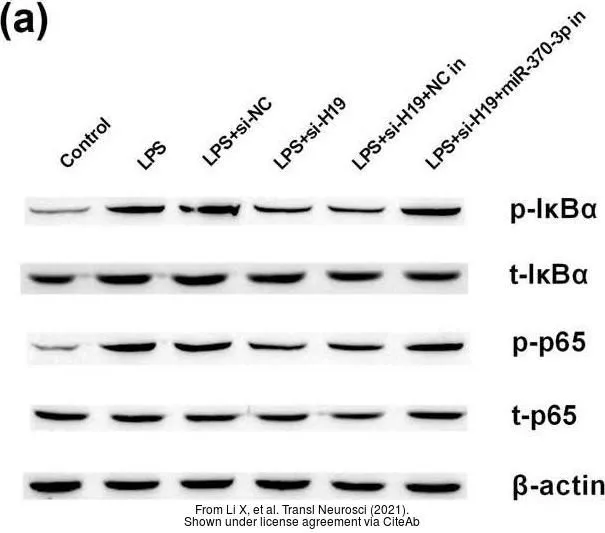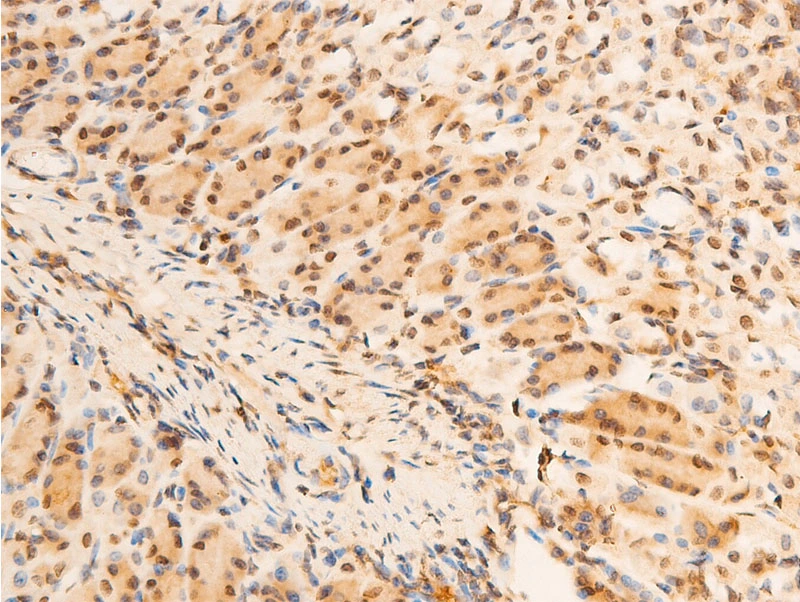![WB analysis of NIH-3T3 cell extracts with/without TNF-α (20 ng/ml, 37oC, 30min) treatment using GTX00967 IKB alpha (phospho Ser32) antibody [GT1205]. Dilution : 1:1000 Loading : 25μg WB analysis of NIH-3T3 cell extracts with/without TNF-α (20 ng/ml, 37oC, 30min) treatment using GTX00967 IKB alpha (phospho Ser32) antibody [GT1205]. Dilution : 1:1000 Loading : 25μg](https://www.genetex.com/upload/website/prouct_img/normal/GTX00967/GTX00967_20200327_WB_1_w_23053121_360.webp)
WB analysis of NIH-3T3 cell extracts with/without TNF-α (20 ng/ml, 37oC, 30min) treatment using GTX00967 IKB alpha (phospho Ser32) antibody [GT1205]. Dilution : 1:1000 Loading : 25μg
IKB alpha (phospho Ser32) antibody [GT1205]
GTX00967
ApplicationsWestern Blot
Product group Antibodies
ReactivityHuman, Mouse, Rat
TargetNFKBIA
Overview
- SupplierGeneTex
- Product NameIKB alpha (phospho Ser32) antibody [GT1205]
- Delivery Days Customer9
- Application Supplier NoteWB: 1:500 - 1:2000. *Optimal dilutions/concentrations should be determined by the researcher.Not tested in other applications.
- ApplicationsWestern Blot
- CertificationResearch Use Only
- ClonalityMonoclonal
- Clone IDGT1205
- ConjugateUnconjugated
- Gene ID4792
- Target nameNFKBIA
- Target descriptionNFKB inhibitor alpha
- Target synonymsEDAID2, IKBA, MAD-3, NFKBI, NF-kappa-B inhibitor alpha, I-kappa-B-alpha, IkappaBalpha, ikB-alpha, major histocompatibility complex enhancer-binding protein MAD3, nuclear factor of kappa light chain gene enhancer in B-cells, nuclear factor of kappa light polypeptide gene enhancer in B-cells inhibitor, alpha
- HostRabbit
- IsotypeIgG
- Protein IDP25963
- Protein NameNF-kappa-B inhibitor alpha
- Scientific DescriptionThis gene encodes a member of the NF-kappa-B inhibitor family, which contain multiple ankrin repeat domains. The encoded protein interacts with REL dimers to inhibit NF-kappa-B/REL complexes which are involved in inflammatory responses. The encoded protein moves between the cytoplasm and the nucleus via a nuclear localization signal and CRM1-mediated nuclear export. Mutations in this gene have been found in ectodermal dysplasia anhidrotic with T-cell immunodeficiency autosomal dominant disease. [provided by RefSeq, Aug 2011]
- ReactivityHuman, Mouse, Rat
- Storage Instruction-20°C or -80°C,2°C to 8°C
- UNSPSC41116161

![WB analysis of C6 cell extracts with/without TNF-α (20 ng/ml, 37oC, 30min) treatment using GTX00967 IKB alpha (phospho Ser32) antibody [GT1205]. Dilution : 1:1000 Loading : 25μg WB analysis of C6 cell extracts with/without TNF-α (20 ng/ml, 37oC, 30min) treatment using GTX00967 IKB alpha (phospho Ser32) antibody [GT1205]. Dilution : 1:1000 Loading : 25μg](https://www.genetex.com/upload/website/prouct_img/normal/GTX00967/GTX00967_20200327_WB_2_w_23053121_269.webp)
![Untreated (–) and treated (+) HeLa whole cell extracts (30 μg) were separated by 10% SDS-PAGE, and the membrane was blotted with IKB alpha (phospho Ser32) antibody [GT1205] (GTX00967) diluted at 1:500. The HRP-conjugated anti-rabbit IgG antibody (GTX213110-01) was used to detect the primary antibody. Untreated (–) and treated (+) HeLa whole cell extracts (30 μg) were separated by 10% SDS-PAGE, and the membrane was blotted with IKB alpha (phospho Ser32) antibody [GT1205] (GTX00967) diluted at 1:500. The HRP-conjugated anti-rabbit IgG antibody (GTX213110-01) was used to detect the primary antibody.](https://www.genetex.com/upload/website/prouct_img/normal/GTX00967/GTX00967_4000000147_20200313_WB_treatment_TNF-alpha_w_23053121_776.webp)






![WB analysis of NIH-3T3 cells were treated by TNF-α (20 ng/mL) at 37oC for 30 minutes using GTX03210 IKB alpha (phospho Ser36) antibody [GT1298]. Dilution : 1:1000 Loading : 25μg per lane](https://www.genetex.com/upload/website/prouct_img/normal/GTX03210/GTX03210_76_WB_w_23053123_310.webp)
